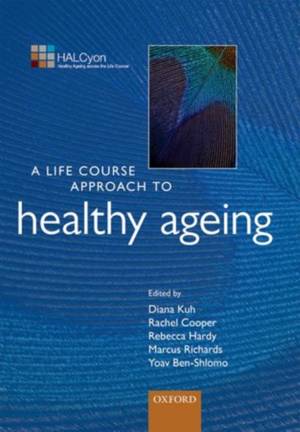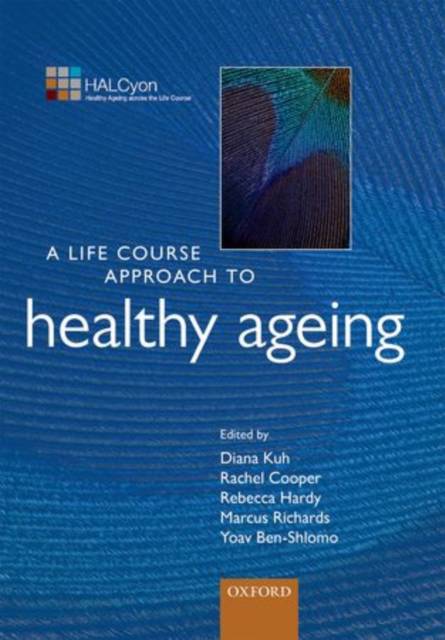
Door een staking bij bpost kan je online bestelling op dit moment iets langer onderweg zijn dan voorzien. Dringend iets nodig? Onze winkels ontvangen jou met open armen!
- Afhalen na 1 uur in een winkel met voorraad
- Gratis thuislevering in België vanaf € 30
- Ruim aanbod met 7 miljoen producten
Door een staking bij bpost kan je online bestelling op dit moment iets langer onderweg zijn dan voorzien. Dringend iets nodig? Onze winkels ontvangen jou met open armen!
- Afhalen na 1 uur in een winkel met voorraad
- Gratis thuislevering in België vanaf € 30
- Ruim aanbod met 7 miljoen producten
Zoeken
Omschrijving
Healthy aging has long been a neglected area of epidemiological research as the traditional focus has been on specific chronic diseases of older life. There is a growing consensus from scientists, research funders and policy makers that ageing itself needs to be studied from an interdisciplinary and life course perspective, to inform strategies for reducing the societal and individual costs of an aging population. A Life Course Approach to Healthy Ageing is a synthesis of life course perspectives in epidemiology and interdisciplinary perspectives in aging research. It brings together expert investigators of maturing birth cohort and aging studies, cross-cutting methodologists, and authorities in aging research and knowledge transfer from across the world in one wide-ranging volume. Contributors discuss how aspects of healthy aging are conceptualised, defined and measured; relate to each other; change across life; and are influenced by biological, psychological and social factors operating from early life onwards. They identify research gaps, and suggest how evidence from observational studies can be strengthened through improved study design and longitudinal analysis, thereby increasing the research contribution to practice or policy change. The book considers how we might delay or slow down the progressive, generalised impairment of function that occurs at the individual, body system and cellular levels, as people grow older. It also considers the determinants of wellbeing in older people, including personal fulfilment, positive emotions and social relationships. Broad in scope, discussing topics from genetics to psychological and social wellbeing, A Life Course Approach to Healthy Ageing is a key resource for epidemiologists, social scientists, clinicians, public health physicians, policy makers and practitioners with a research interest in healthy aging.
Specificaties
Betrokkenen
- Auteur(s):
- Uitgeverij:
Inhoud
- Aantal bladzijden:
- 300
- Taal:
- Engels
- Reeks:
Eigenschappen
- Productcode (EAN):
- 9780199656516
- Verschijningsdatum:
- 19/02/2014
- Uitvoering:
- Paperback
- Formaat:
- Trade paperback (VS)
- Afmetingen:
- 170 mm x 244 mm
- Gewicht:
- 498 g

Alleen bij Standaard Boekhandel
+ 247 punten op je klantenkaart van Standaard Boekhandel
Beoordelingen
We publiceren alleen reviews die voldoen aan de voorwaarden voor reviews. Bekijk onze voorwaarden voor reviews.











